Welcome to September’s JGI Community Update
Please share with your networks and invite people to Join the JGI Community through completing our quick online form – Join the JGI Community
News
An explosion of data – applications and implications of a data driven society
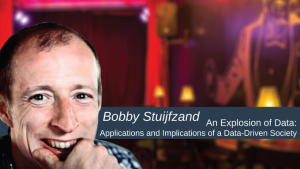
At the end of the summer, JGI’s resident Data Scientist, Bobby Stuijfzand joined the Bristol Skeptics in the Smoke and Mirrors pub on Denmark Street, Bristol to present ‘An explosion of data – applications and implications of a data driven society’.
Our ability to generate and use data has tremendously increased in the past few years. Data is now influencing many aspects of daily life, from tailoring our internet experiences to the managing of traffic flows on smart motorways. Data is also the key driver behind major technological advances based on artificial intelligence and machine learning. Advances are expected to have major effects on society as we know it (think for example about driverless cars, electronic personal assistants and the internet of things). Data is a powerful, promising and omnipresent force in modern day society. But this however, sits quite uncomfortably with many of us. We don’t always know where and when data is being collected, what it is being used for and what we get back from it.
Bobby presented differing views on the impact of data in society and sparked lively debates amongst the crowd.
Funding opportunities
Deadline 31 October 2017
Initiator fund: up to £20K. Accelerator fund: £20-75K
The panel wishes to particularly encourage applications with a focus on Global Challenges Research Fund and Industrial Challenge Strategy Fund.
Jean Golding Institute (JGI) Seed corn funding
The Jean Golding Institute will be launching a seed corn funding call soon, stay tuned!
More funding opportunities
A list of current funding opportunities is available on the Research Development website. (UoB internal only)
Events
For up to the minute events relevant to the data intensive research community please see our events page on the JGI website
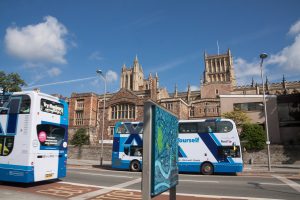 Tuesday 19 September @ 13.00 – 16.30 Armada House, Telephone Avenue, Bristol BS1 4BQ
Tuesday 19 September @ 13.00 – 16.30 Armada House, Telephone Avenue, Bristol BS1 4BQ
Bristol Health Partners and the Elizabeth Blackwell Institute are creating a new resource, a Health Data Inventory. For the first time, this will provide an easy way to understand what information is available for research in our region and where it’s held. Bristol is the first region to develop such a tool and this is your chance to define how this tool should be used.
This workshop will introduce the Health Data Inventory and pilot funding will be made available by the Elizabeth Blackwell Institute for University of Bristol researchers to develop high quality pilot projects using this data. For more information please email oliver.watson@bristol.ac.uk.
Tuesday 26 September 2017 @ 13.00 – 14.00 Beacon House Seminar Room, University of Bristol, BS8 1SE
This is the first bring-your-own-lunch meeting of the University of Bristol data visualisation working group. In this meeting we will focus on good and bad practices in data visualisation.
The ‘Data visualisation’ working group is interested in representing large scale data in innovative ways: i.e. more than just a graph! There will also be time scheduled to identify the future directions and needs of the group, and we hope to get an idea of who may be willing to lead one or more sessions (but you are also more than welcome to attend if you are not comfortable/willing to lead a session).
This session will be led by Harriet Mills and Bobby Stuijfzand and we are currently collecting materials (i.e. good and bad visualisations) as input for discussion during the meeting. If you are aware of any good (or bad!) data visualisations, please do email them to bg.stuijfzand@bristol.ac.uk
The working group is supported by the Jean Golding Institute (JGI).
Bristol Bridge: Interdisciplinary approaches and new directions in Antimicrobial Resistance (AMR) research at Bristol
Wednesday 27 September 2017 @ 13.00 – 18.00 Lecture Theatre 3 and East Foyer, School of Chemistry
As you may be aware, the BristolBridge AMR network project concludes on 30 September. To mark this, there will be a final event to celebrate its achievements and those of the wider AMR research community at Bristol. AMR research is currently being undertaken in 5 of our 6 Faculties and in 12 Schools and Departments. Many in the AMR research community also work closely with Bristol’s NHS trusts, Public Health England labs, the veterinary and farming community and increasingly with industry.
The AMR research community has much to celebrate – the University of Bristol is currently leading the UK in the number of awards (and value) from the cross-council AMR funding initiative. They will also be looking forward to some new AMR research and training initiatives at Bristol too.
All AMR and related posters are very welcome (please note that all projects/activities that have been funded by BristolBridge are requested to present a poster, thank you). Please register. The deadline for registration is 20 September 2017.
16 October 2017 @ 11.00 The Lantern Theatre, Colston Hall, Bristol, UK
 Free tickets are for children and teachers / accompanying adults from state schools. Ada.Ada.Ada is an interactive theatre production which celebrates the work of Mathematician Ada Lovelace. The Jean Golding Institute (JGI) is sponsoring this event. The aim of the show is to inspire the next generation of technical innovators and help people, especially girls and women, to engage with technology and STEM as a career. For more details please see Ada.Ada.Ada. A Theatre production
Free tickets are for children and teachers / accompanying adults from state schools. Ada.Ada.Ada is an interactive theatre production which celebrates the work of Mathematician Ada Lovelace. The Jean Golding Institute (JGI) is sponsoring this event. The aim of the show is to inspire the next generation of technical innovators and help people, especially girls and women, to engage with technology and STEM as a career. For more details please see Ada.Ada.Ada. A Theatre production
20 Octo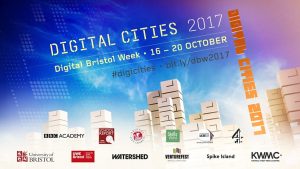 ber 2017 @ 17.00 – 19.00 The Hub, Unit 5-6, 1 Canon’s Road, Bristol, BS1 5UH
ber 2017 @ 17.00 – 19.00 The Hub, Unit 5-6, 1 Canon’s Road, Bristol, BS1 5UH
Bristol based musicians and sound artists Yas Clarke and Lorenzo Prati have been working alongside the Jean Golding Institute and Bristol University’s Music and Engineering Departments to produce an installation which sonically represents structural data of the Clifton Suspension Bridge.
This unique installation takes the form of a robotic two-course harp resembling the Clifton Suspension Bridge in shape. The instrument will be played by two independent robotic arms, each one strumming the strings of one side of the harp in response to data harvested on the north and south side of the bridge.
This intriguing installation forms part of Digital Bristol Week and is open to the public at this Waterfront venue. Keep checking the JGI website events page for more details as they emerge.
14 November 2017 @ 1pm – 6.30pm New Wing, Queen’s Building, University Walk, Bristol, BS8 1TR
Meet with academic and industry colleagues and explore opportunities for developing new collaborations and partnerships
For full details see Engineering Research Showcase 2017
27 and 28 November 2017 Digital Catapult, London
BOC is the largest provider of industrial, medical and special gases in the UK and Ireland and is part of The Linde Group. BOC is interested in identifying collaboration partners for developing solutions, as well as learning about plug and play technologies that can support discovery of customer insights. Innovators could also benefit from involvement in upcoming collaborations with BOC and other activities promoted by Digital Catapult.
The Pit Stop is a focused open innovation activity designed to accelerate the growth of new ideas. You will get the chance to explore specific challenges of BOC’s datasets and discuss potential solutions with BOC and technology and industry experts. To attend this Pit Stop please apply by 13 October 2017
Competitions
The Urban Big Data Centre (UBDC) is offering voucher prizes. Entries close 1 October 2017
Download the data, develop your ideas and pitch your innovations to an expert judging panel to win the exciting new cycling Data Challenge and take home the £1,000 voucher prize.
The benefits of cycling as a mode of transport are well documented – including saving money, improving health and a cleaner environment for all. Whether you’re an academic, in business, involved in a charity, a startup or a data enthusiast the challenge is to use Strava Metro data to develop innovative solutions to answer the question, how do we get more people cycling?
This is how it works: the data will be provided and the rest is up to you! Your entry could take the form of a tool, an app, a visualisation, a linked dataset, or a new piece of software to clearly demonstrate your ideas. Following the first round of judging, selected finalists will be invited to pitch their innovations to the judging panel and an audience of event attendees at a Demo Day.
The Rail Safety and Standards Board (RSSB), via the Rail Research UK Association (RRUKA), is to invest up to £500,000 in academic-led feasibility studies to identify data driven solutions to key network performance challenges in the rail industry in order to increase reliability, capacity and maintainability of the railway system.
Please visit the Data Sandbox webinar hub for more info and to join the discussion.
Register to attend the information and networking day on 31 October 2017 in London
Bristol may soon have its own ‘digital twin’ – a first for the UK – through a new competition launched by Lord Adonis. Find out more.
User surveys
Open until 15 October 2017
The Engineering and Physical Sciences Research Council (EPSRC) have just launched the Capital Roadmap for X-ray Computed Tomography: EPSRC user survey to get a better understanding of the future needs for investment in cutting-edge and underpinning equipment that will support world-leading physical science and engineering in the UK.
An important element of these roadmaps is to understand the current equipment provision across the UK. The working group would like the help of the community to inform EPSRC’s understanding of current provision by completing this survey. The group would also like to collect views on the future challenges and technical developments in tomography required to enable new science.
Want to improve your ability to find data and use data in your research? Then take this online survey to give the UK Data Service feedback on their current Discover search interface and give input into their next-generation data repository, which will improve your ability to explore, analyse and link data in the UK Data Service’s collection.
This survey is the first of many initiatives in their endeavour to generate a special focus on user experience for the UK Data Service. In recognition of those giving their time to respond to these questions they are offering the first 100 respondents a £20 Amazon voucher as a thank you (terms and conditions apply).
Keep in touch
We are always happy to hear from you!
Would you like your events publicised by the JGI? Do you have interesting datasets that you would like to share/promote? Have any queries or would like to get involved? Please contact us jgi-admin@bristol.ac.uk
Follow us on Twitter @JGIBristol




 Tuesday 19 September @ 13.00 – 16.30 Armada House, Telephone Avenue, Bristol BS1 4BQ
Tuesday 19 September @ 13.00 – 16.30 Armada House, Telephone Avenue, Bristol BS1 4BQ
 ber 2017 @ 17.00 – 19.00 The Hub, Unit 5-6, 1 Canon’s Road, Bristol, BS1 5UH
ber 2017 @ 17.00 – 19.00 The Hub, Unit 5-6, 1 Canon’s Road, Bristol, BS1 5UH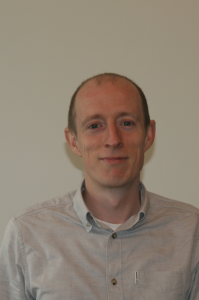
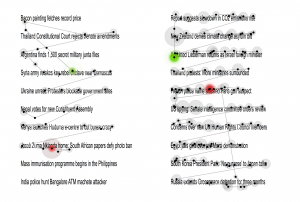 Computer scientists might call these features, while statisticians and psychologists think of these as variables. By comparing these variables for different large groups of raw observations (data sets), you can work out which characteristics are different between groups – perhaps what people are reading or what task they are doing. Fitting mathematical descriptions to these characteristics lets you predict how they will vary if you were to collect more and more data. Finally, with these models, computers are trained to make predictions about which group new data is likely to be in based on these findings.
Computer scientists might call these features, while statisticians and psychologists think of these as variables. By comparing these variables for different large groups of raw observations (data sets), you can work out which characteristics are different between groups – perhaps what people are reading or what task they are doing. Fitting mathematical descriptions to these characteristics lets you predict how they will vary if you were to collect more and more data. Finally, with these models, computers are trained to make predictions about which group new data is likely to be in based on these findings.